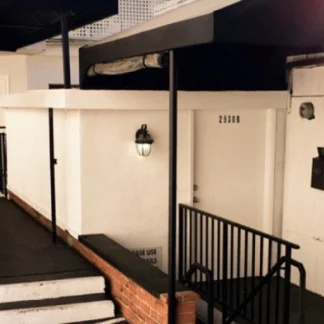Breathe Life Healing Centers
Breathe is dedicated to outstanding trauma-informed clinical care to each client...
Recovery Now offers residential addiction and mental health treatment for individuals in Los Angeles, California. They also provide valuable community resources, including referrals and family support services.
Recovery Now’s treatment begins with a mental health assessment. These assessments help to establish the resident has achieved sobriety and provide an ongoing support plan and counseling to help them sustain their recovery. Other services include:
Recovery Now provides a structured recovery residence for people in early recovery. Residents are required to attend regular 12-step meetings, comply with house rules, secure employment, and take part in household chores. They offer programs for adults over 18. Residents may also be required to take a random drug screening to ensure compliance with the house rules.
The peer support program is offered by individuals with lived experience of addiction and recovery. Certified by the state, peers can support individuals to make a recovery plan, access services, and assist them in achieving their goals.
Medication-assisted treatment (MAT) is appropriate for opioid use disorders and combines counseling and medication management in an outpatient setting. Participants also attend regular recovery meetings, access peer support groups, and regular follow-up meetings. Recovery Now is a private pay facility.
Contact us for more information: (800) 281-4731

Connect with Recovery Now by calling their admissions team directly.
(800) 281-4731 Website Get DirectionsWhether a marriage or other committed relationship, an intimate partnership is one of the most important aspects of a person's life. Drug and alcohol addiction affects both members of a couple in deep and meaningful ways, as does rehab and recovery. Couples therapy and other couples-focused treatment programs are significant parts of exploring triggers of addiction, as well as learning how to build healthy patterns to support ongoing sobriety.
Research clearly demonstrates that recovery is far more successful and sustainable when loved ones like family members participate in rehab and substance abuse treatment. Genetic factors may be at play when it comes to drug and alcohol addiction, as well as mental health issues. Family dynamics often play a critical role in addiction triggers, and if properly educated, family members can be a strong source of support when it comes to rehabilitation.
Group therapy is any therapeutic work that happens in a group (not one-on-one). There are a number of different group therapy modalities, including support groups, experiential therapy, psycho-education, and more. Group therapy involves treatment as well as processing interaction between group members.
In individual therapy, a patient meets one-on-one with a trained psychologist or counselor. Therapy is a pivotal part of effective substance abuse treatment, as it often covers root causes of addiction, including challenges faced by the patient in their social, family, and work/school life.
Research clearly demonstrates that recovery is far more successful and sustainable when loved ones like family members participate in rehab and substance abuse treatment. Genetic factors may be at play when it comes to drug and alcohol addiction, as well as mental health issues. Family dynamics often play a critical role in addiction triggers, and if properly educated, family members can be a strong source of support when it comes to rehabilitation.
Group therapy is any therapeutic work that happens in a group (not one-on-one). There are a number of different group therapy modalities, including support groups, experiential therapy, psycho-education, and more. Group therapy involves treatment as well as processing interaction between group members.
In individual therapy, a patient meets one-on-one with a trained psychologist or counselor. Therapy is a pivotal part of effective substance abuse treatment, as it often covers root causes of addiction, including challenges faced by the patient in their social, family, and work/school life.
Group therapy is any therapeutic work that happens in a group (not one-on-one). There are a number of different group therapy modalities, including support groups, experiential therapy, psycho-education, and more. Group therapy involves treatment as well as processing interaction between group members.
In individual therapy, a patient meets one-on-one with a trained psychologist or counselor. Therapy is a pivotal part of effective substance abuse treatment, as it often covers root causes of addiction, including challenges faced by the patient in their social, family, and work/school life.
In individual therapy, a patient meets one-on-one with a trained psychologist or counselor. Therapy is a pivotal part of effective substance abuse treatment, as it often covers root causes of addiction, including challenges faced by the patient in their social, family, and work/school life.
Breathe is dedicated to outstanding trauma-informed clinical care to each client...
Covenant House California offers housing programs and outpatient medical and men...
Children’s Bureau - Magnolia Place Family Center, in Los Angeles, California, of...
Miracles in Action, located in Northridge, California, offers treatment plans fo...